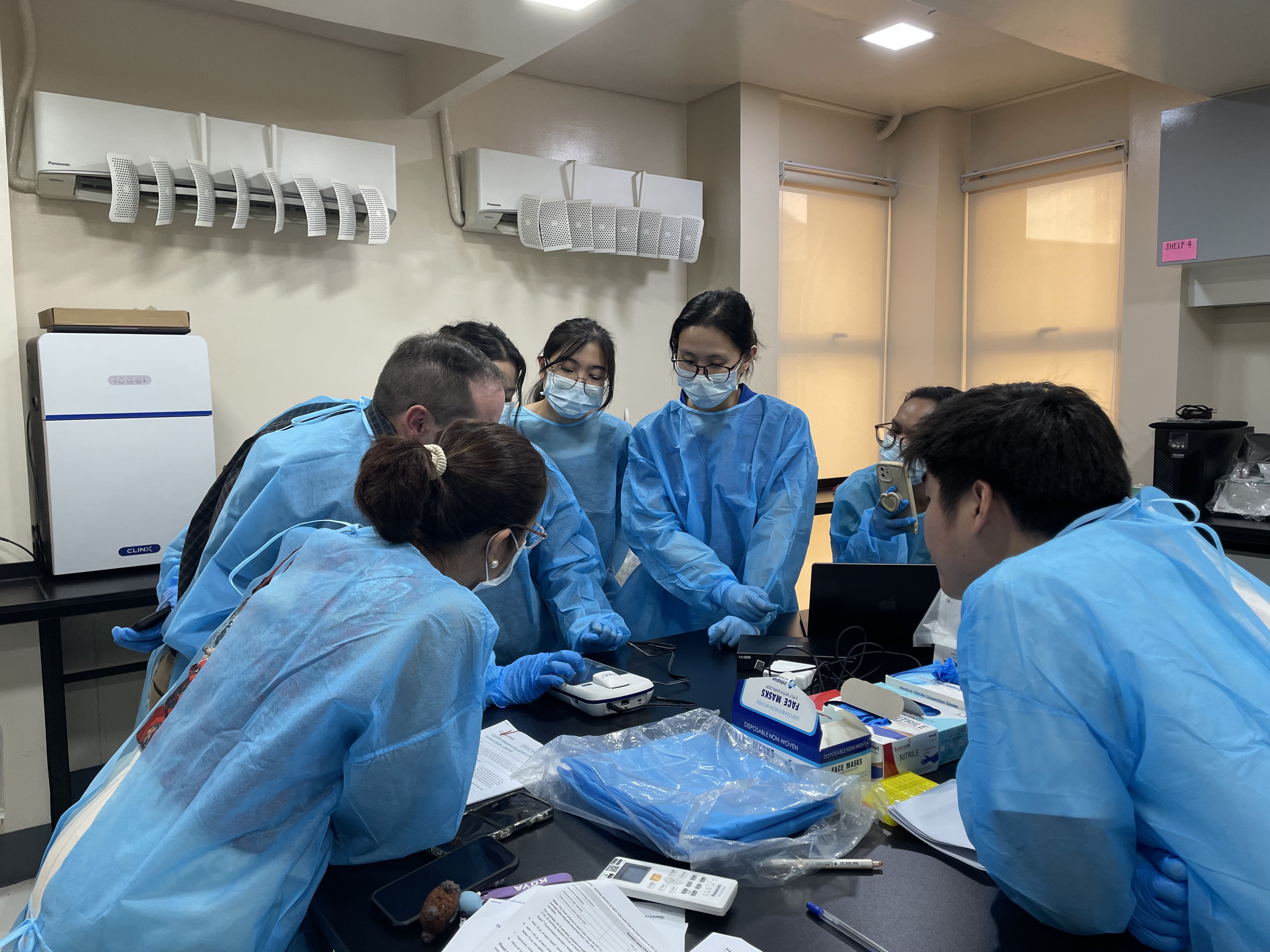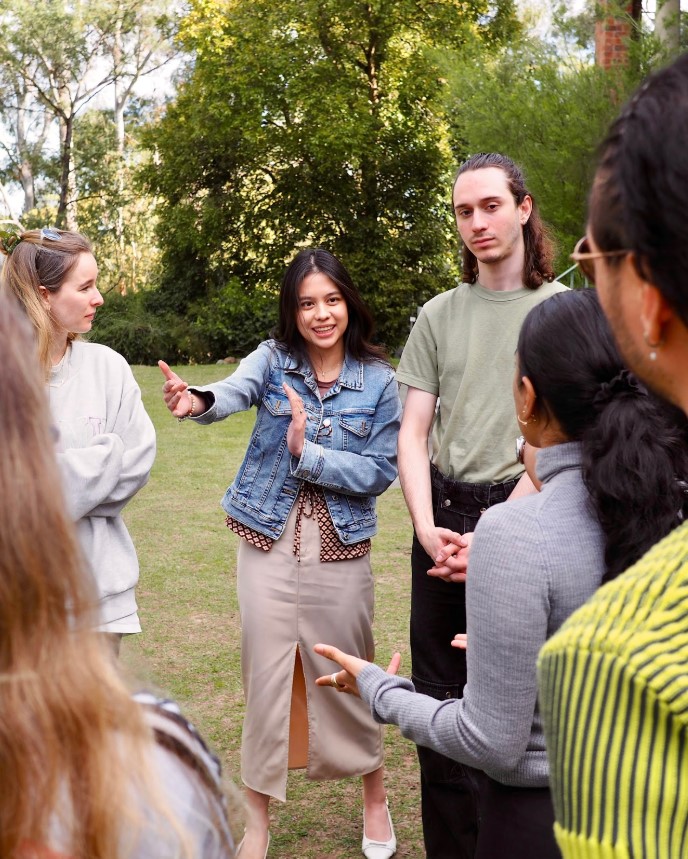
ACRI Biotechnology Flagship Program Completes Successful Nanopore Sequencing Training
Last October 30 to November 1, 2024, the Ateneo Center of Research and Innovation’s (ACRI) Biotechnology Flagship Program (BFP) concluded its three-day hands-on genomics and sequencing workshop at the Ateneo School of Medicine and Public Health in its newly established molecular biology laboratory. This three-day training was a combination of lectures and laboratory work that provided its participants with theoretical and practical experience in handling and using Oxford Nanopore’s MinION portable sequencing device, covering essential skills from DNA library preparation to bioinformatics data analysis. Aside from the research assistants in the BFP, professors from the Loyola Schools and ASMPH likewise participated in the event.
The first training day consisted of both lecture and laboratory sessions. It commenced with a lecture on Next Generation Sequencing (NGS) and bioinformatics terminology and workflows, the two critical lessons for the duration of the event. An introduction to Oxford Nanopore Technology (ONT) focused on nanopore sequencing was also discussed. In preparation for the bulk of the hands-on training, the afternoon session was devoted to calibrating the QubitTM Fluorometer, a tool used for DNA quantitation following the dsDNA high-sensitivity assay. Likewise, the participants learned how to do a quality check with the Flow Cell, the component that contains the nanopores for DNA/RNA sequencing.
Image 1. Samples and standards were prepared to calibrate the QubitTM Fluorometer.
Image 2. Participants were guided on the Flow Cell quality check.
On the second training day, the participants were guided with a hands-on session on ligation sequencing, starting with DNA repair and end preparation, followed by adapter ligation and clean-up, and finally, priming and loading the MinION Flow Cell.
Image 3. Each participant was given the opportunity to work on a certain section in the protocol.
The final training day involved lectures on utilizing various bioinformatics tools to process and analyze sequenced data. The event concluded with a short hands-on activity of washing and returning the Flow Cell for reuse.
Image 4. Proper pipetting skills are necessary when washing the ONT MinION portable sequencing device to maximize its function in succeeding experiments.
Overall, ACRI aspires to advance research related to molecular biology within the Ateneo de Manila University. The BFP intends to enhance its capabilities in nucleic acid extraction, polymerase chain reaction, and next-generation sequencing, enabling it to conduct training sessions for all students from the Loyola Schools and medical students in the ASMPH.
-
ASMPH, ACRI, and Maxicare ink groundbreaking data partnership to advance smarter healthcare
In a strategic move to push the boundaries of evidence-based medicine, the Ateneo School of Medicine and Public Health (ASMPH), the Ateneo Center for Research and Innovation (ACRI), and Maxicare Healthcare Corporation have formally launched a research and data-sharing partnership designed to transform healthcare outcomes and strengthen medical education in the Philippines. Held at ASMPH last July 21, 2025, the Memorandum of Understanding (MOU) signing brought together leaders from both the academic and healthcare sectors to seal a collaborative effort focused on leveraging data for research, policy development, and improved patient care.
-

ACRI Junior Research Fellow Samantha Eala Selected for the Wattle Fellowship
The Ateneo Center for Research and Innovation is proud to share that Samantha Eala, Junior Research Fellow, University of Melbourne Master of Public Health student, and Australia Awards scholar, has been selected as a Wattle Fellow. This prestigious fellowship is part of a year-long program designed to foster leadership on global sustainability, emphasising multidisciplinary approaches, transformative leadership, and practical skills development.

